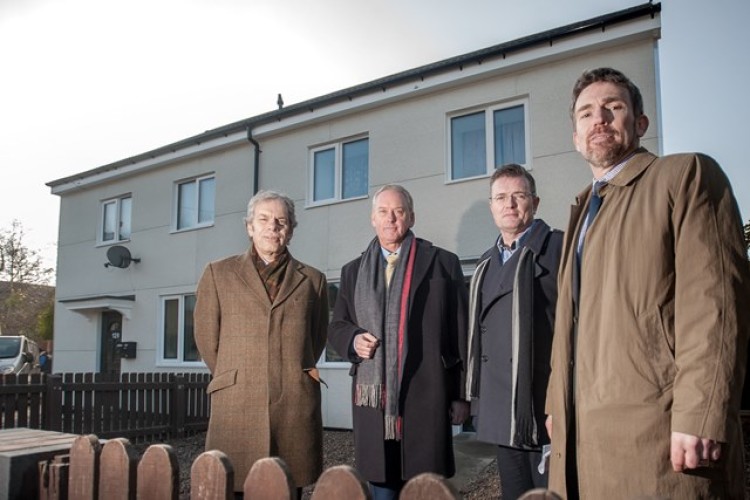The project, known as Retrofit Plus, has been carried out by Beattie Passive alongside Birmingham City University, InteSys Ltd and iZDesign to see how changes made to houses could cut heating energy bills and lift low-income households out of fuel poverty.
Two semi-detached houses in the Shard End area of Birmingham were handed over to the project by Birmingham City Council last year. Residents were able to continue living in the properties while the changes were carried out.
The process saw a range of energy efficient measures introduced including fitting the houses with Beattie Passive’s TCosy Deep Retrofit system. TCosy wraps entire buildings with a new insulated layer by installing a timber frame structure completely around the homes and injecting insulation material into the walls and roof cavity. This creates a continuous insulated layer around the building, eliminating heat loss and making the buildings draught free – forming a process that can be ‘retrofitted’ to refurbish existing homes.
As part of the retrofit, new triple-glazed windows and doors were installed along with a mechanical ventilation and heat recovery system. The whole system was built to Passivhaus standards.
The homes were also fitted with sensors and controls to regulate the houses’ temperatures as well as learning and reacting to residents’ patterns of use.
Since work began in September 2016 the results have shown an 80% reduction in the use of energy.

Ron Beattie of Beattie Passive said: “This project took our TCosy innovation forward to an offsite manufactured panel. This has greatly increased the speed of works and with further innovations we expect to see the process become quicker and more affordable.
“We have received many positive comments from the tenants of our retrofitted properties who are already enjoying a warmer, healthier Passivhaus living environment as well as reduced energy bills.”
Birmingham City University provided simulation design analysis of the houses, tracked their carbon outputs and InteSys Ltd developed a predictive control system that learns physical characteristics of the building and delivers the right amount of heat at the right time.
Thermal imaging and 3D laser scanning formed a part of the pre-retrofit survey that enabled the creation of design simulation models to help plan the best way to achieve a zero-carbon rating and monitor the changes in energy consumption.
Professor Lubo Jankovic, head of the Birmingham City University’s Zero Carbon Lab, said: “Retrofit plus has been shown to reduce heating energy consumption and carbon emissions by 80 per cent, saving money for residents and providing a process suitable for a UK-wide scaling-up.”
The houses have now been handed back to Birmingham City Council but their energy use will continue to be monitored until later this summer.
Got a story? Email news@theconstructionindex.co.uk



